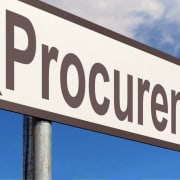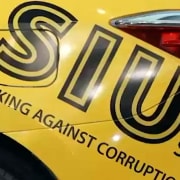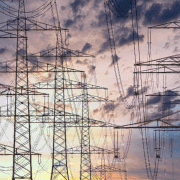|
Getting your Trinity Audio player ready...
|
It may have happened nearly four years ago, but South Africans have not forgotten the mad rush to exploit the relaxed emergency procurement regulations that were put in place when Covid-19 hit the country. Corruption flourished as civil servants and private companies alike fell over themselves to grab a slice of the pie. Overnight, companies sprang up or suddenly claimed expertise in the supply of personal protective equipment (PPE). Some were covertly owned by government employees.
The arrival of the virus quickly exposed the cracks in South Africa’s already-weak procurement system, as highlighted by the Auditor-General of South Africa in its three dedicated Covid-19 reports.
“The pre-existing deficiencies in the supply chain processes of government were amplified by the introduction of the emergency procurement processes allowed for personal protective equipment. Based on what we have audited to date, there are clear signs of overpricing, unfair processes, potential fraud as well as supply chain management legislation being sidestepped,” wrote the late Kimi Makwetu, auditor-general at the time of the release of the first report in 2020.
“Poor record keeping is a common feature across many of the initiatives, which means that auditees do not always have updated or reliable information on the goods and services delivered and the implementation of initiatives, which also made it difficult for us to audit these matters,” he added.
Meanwhile, the Special Investigating Unit (SIU) has been working doggedly since then to investigate the allegations of wasteful expenditure, fraud and corruption that emerged across the different levels of government, and to recover as much of the wasted money as possible. Under Proclamation R23 of 2020, the SIU probed over 600 companies that were awarded PPE contracts to the value of R5-billion.
The organisation scored its latest coup in February 2024, when the Special Tribunal declared a R113.2-million personal protective equipment (PPE) contract awarded to Centurion-based LNG Scientific by the Gauteng Department of Health (GDoH) in 2020 as invalid and unlawful, and set it aside. The department itself was heavily implicated in the awarding of irregular contracts to procure PPE.
Furthermore, the tribunal ordered that LNG be divested of all profits enjoyed under the invalid contract.
“LNG was ordered to submit audited statements within 30 days setting out its income and expenses in relation to the PPE items it delivered to the Gauteng health department pursuant to the impugned contract supported by expert reports,” said the SIU in a statement released on 20 February. “LNG was also ordered to pay the legal costs of the application and SIU.”
The SIU was ordered to file, within 10 days of receiving the audited statements, “a report by a duly qualified expert, addressing such audited statements and expert reports, including but not limited to the reasonableness of the income and expenses set out in such statements,” the judgment read.
Finally, both parties must file a joint minute by the auditors of such statements and the parties’ experts if any, setting out the issues on which they agree and those on which they disagree. Should there be disagreements, the tribunal would issue an appropriate order and in the case of no disagreements, “LNG shall be liable to pay to the GDoH the amount of its profits specified in the joint minute”.
The SIU explained that on 24 April 2020, the then GDoH CFo Kabelo Lehloenya decided to procure 500 000 N95 masks at R55.50 each, 1 000 000 three-ply surgical masks at R18.00 each, and 250 000 boxes of 100 sterile, powder-free surgical gloves at R270 per box.
The investigation that followed established that the GDoH did not follow competitive bidding processes, while deviations from this process were not duly approved, and the contracted prices were high. Furthermore, the SIU found that LNG was not registered on the government’s Central Supplier Database for the supply of PPE when it was awarded the multi-million-rand contract. It did register later, according to the SIU’s court papers, but not early enough to make it eligible for the tender.
“The SIU is empowered to institute civil action in the High Court or a Special Tribunal in its name to correct any wrongdoing uncovered during both investigations caused by acts of corruption, fraud, or maladministration. In line with the Special Investigating Units and Special Tribunals Act 74 of 1996, the SIU refers any evidence pointing to criminal conduct it uncovers to the National Prosecuting Authority (NPA) for further action.”








